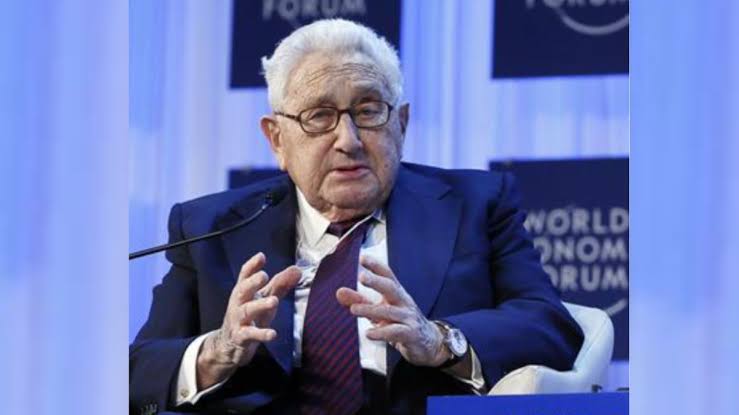Washington: Former United States Secretary of State Henry Kissinger, who shaped the country’s Cold War history, passed away at the age of 100 on Thursday.
A controversial Nobel Prize winner, Kissinger served under two US presidents and left an indelible mark on the foreign policy of the United States.
Kissinger passed away on Wednesday, Kissinger Associates Inc said. He passed away at his home in Connecticut.
Even after turning 100, Kissinger was attending meetings in the White House and publishing a book regarding leadership styles. He also testified before a Senate committee regarding the nuclear threat that North Korea posed.
In July this year, Kissinger made a surprise visit to Beijing to meet Chinese President Xi Jinping.
In the 1970s, Kissinger was the secretary of state under Republican President Richard Nixon and worked on several global events.
A German-born Jewish refugee, Kissinger led efforts to open diplomatic affairs with China, a landmark US-Soviet arms talks, thickening ties amid Israel and Arab neighbours and the Paris Peace Accords with North Vietnam.
Kissinger’s role as the primary architect of the US foreign policy diminished with Nixon’s resignation in 1974. However, he remained a significant diplomatic influence during President Gerald Ford’s tenure and continued to express strong opinions for the remainder of his life.
Although many lauded Kissinger for his intellect and extensive experience, several others also labelled him as a war criminal due to his support of anti-communist dictatorships, particularly in Latin America. In his later years, his global travels were restricted by attempts from other nations to apprehend or interrogate him regarding past US foreign policy.
The 1973 Peace Prize, shared with North Vietnam’s Le Duc Tho — who declined it — remains one of the most contentious in history. The controversial award led to the resignation of two Nobel committee members and inquiries also emerged concerning the US covert bombing of Cambodia.



